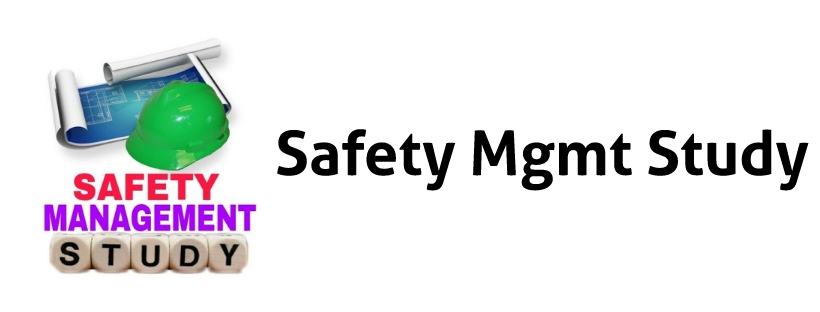ADIS Safety Course vs NEBOSH Safety Course: Which one is Best
In today’s industrial landscape, safety is paramount. Companies prioritize safety training to ensure their workforce is well-equipped to handle potential hazards. Two prominent safety courses often compared are the ADIS (Advanced Diploma in Industrial Safety) and the NEBOSH (National Examination Board in Occupational Safety and Health). This blog post aims to provide a detailed comparison between these two courses, covering various aspects to help you make an informed decision, including job opportunities and potential salaries.
Photo by Keira Burton:
Course Overview
ADIS (Advanced Diploma in Industrial Safety):
Duration: Typically 1 year.
Level: Advanced diploma.
Focus: Primarily on industrial safety management.
Geographical Relevance: Mainly recognized in India and a few other Asian countries.
Content: Includes safety management, risk assessment, safety legislation, and accident prevention techniques specific to industrial settings.
NEBOSH (National Examination Board in Occupational Safety and Health):
Duration: Varies from a few weeks to several months depending on the specific NEBOSH qualification.
Level: Offers a range of qualifications from introductory to advanced diplomas.
Focus: Broadly covers health, safety, and environmental management.
Geographical Relevance: Internationally recognized.
Content: Encompasses general health and safety, environmental management, risk management, and specialized safety topics.
Curriculum and Syllabus
ADIS:
Core Modules:
- Industrial Safety Management
- Safety Legislation
- Fire Safety and Emergency Management
- Environmental Management
- Safety Audit and Inspection
Practical Training: Emphasis on hands-on training and practical implementation of safety measures in industrial environments.
Assessment: Combination of written exams, practical assessments, and project work.
NEBOSH:
Core Modules:
- Health and Safety Management
- Hazard Identification and Risk Assessment
- Control of Workplace Hazards
- Environmental Management
- Legal and Regulatory Frameworks
Practical Training: Varies by course; higher-level diplomas include extensive practical components.
Assessment: Typically includes written exams and practical assessments, with some courses requiring detailed project reports.
Job Opportunities and Career Growth
ADIS:
Industry Recognition: Highly valued in Indian industries, especially in manufacturing, construction, and heavy industries.
Career Opportunities: Roles such as Safety Officer, Safety Manager, and Environmental Health and Safety (EHS) Specialist within India.
Professional Growth: Suitable for professionals aiming to advance their careers within Indian industrial sectors.
Salary Range: Entry-level positions typically offer INR 3-5 lakhs per annum, with senior positions reaching up to INR 10-15 lakhs per annum.
NEBOSH:
Industry Recognition: Globally recognized, making it valuable for careers in international and multinational companies.
Career Opportunities: Positions like Health and Safety Advisor, Safety Consultant, and Risk Manager worldwide.
Professional Growth: Ideal for those seeking to establish or advance a career in health and safety on an international scale.
Salary Range: Entry-level positions generally offer INR 700000-150,0000 per annum.
Recognition and Value
ADIS:
Geographical Relevance: Mainly recognized within India and some Asian countries.
Return on Investment: High ROI for careers within the Indian industrial sector due to lower course fees and substantial salary potential in domestic industries.
NEBOSH:
Geographical Relevance: Recognized globally, providing opportunities in diverse international markets.
Return on Investment: High ROI globally, with enhanced career prospects and earning potential in international markets, despite higher course fees.
Course Delivery and Flexibility
ADIS:
Mode of Study: Primarily classroom-based with some institutions offering online modules.
Flexibility: Less flexible compared to NEBOSH; mostly structured around a fixed schedule.
Accessibility: Offered by selected institutions in India.
NEBOSH:
Mode of Study: Available in various formats including classroom-based, online, and blended learning.
Flexibility: Highly flexible with options for self-paced study and multiple exam sittings throughout the year.
Accessibility: Offered by numerous accredited providers worldwide.
Cost and Investment
ADIS:
Tuition Fees: Generally lower compared to NEBOSH.
Additional Costs: May include costs for practical sessions, project materials, and exam fees.
Return on Investment: High ROI for careers within the Indian industrial sector.
Total cost UpTo 40000 INR
NEBOSH:
Tuition Fees: Higher, reflecting its international recognition and comprehensive coverage.
Additional Costs: Include study materials, exam fees, and potential travel expenses for attending exams.
Return on Investment: High ROI globally, with enhanced career prospects and earning potential in international markets.
Total cost UpTo 50000 INR
Conclusion
Choosing between the ADIS and NEBOSH safety courses depends largely on your career goals, geographical preferences, and industry focus.
Choose ADIS if: You aim to specialize in industrial safety within India or neighboring countries, and prefer a course with a strong emphasis on practical, hands-on training in industrial settings.
Choose NEBOSH if: You seek a globally recognized qualification that offers flexibility in study modes, and aim to work in diverse health and safety roles internationally.
Both courses are prestigious and offer valuable insights and skills in safety management, ensuring that you are well-prepared to contribute to a safer working environment in your chosen industry.



.jpg)









.png)

.png)
0 Comments